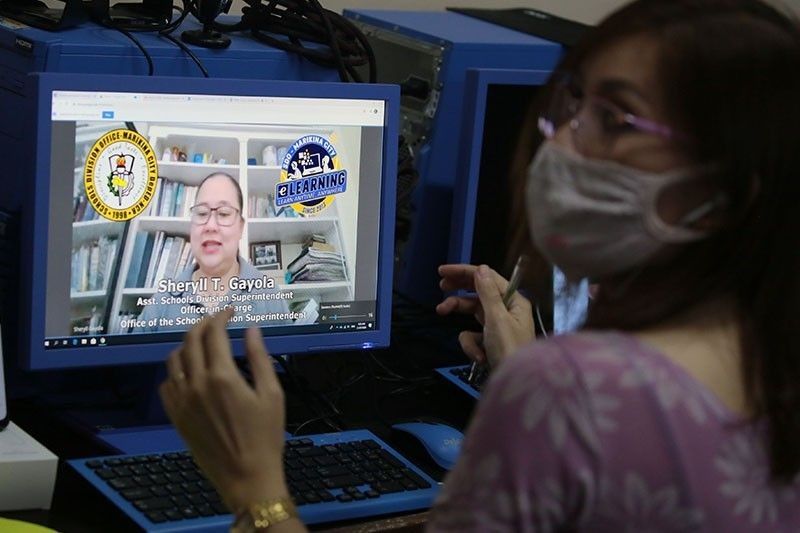Commentary: Keeping up with growing demand for data, connective technology

I had the pleasure of moderating a discussion this week on the Philippines' digital status with telecommunications industry insiders from the public and private sector. After the discussion, three things became readily apparent.
The first is that our data traffic consumption has exploded over the years and only continues to grow. The second is that continued digital infrastructure development is critical to keeping pace with evolving digital demands. The third is that persistent challenges still stand in the way of this development.
During the virtual town hall discussion organized by Stratbase ADR Institute, it was discussed that global internet traffic had grown exponentially over the last two decades. From just 100GB per day back in 1992, today's global internet traffic stands at 1.5 million GBs per second.
The Philippines, in no doubt, has contributed to this increase. Based on the institute's research and monitoring of the local telecommunication sector, between Globe Telecom and Smart Communications alone, mobile data traffic stood at the high terabyte-low petabyte range in 2016. That was only a few years after Lazada and Shopee launched their e-commerce websites, and the year Netflix launched its streaming services in the country.
Since then, GCash has become the most downloaded finance app in the Appstore, and having food and packages delivered via apps like Grab is now second nature. Furthermore, over the last year, school and work had also shifted online because of the pandemic, leading to a reported 500% increase in data usage when lockdowns started last year.
As a result, Globe and Smart now say mobile data traffic in their networks stands at 2,517 petabytes and 2,881 petabytes, respectively, a growth by at least 10-fold in the last five years.
In addition to supporting our changing lifestyles, digital infrastructure is also key to our economy. During the webinar, Prof. Dindo Manhit, President of Stratbase ADR Institute, stressed that "digitization has proven to be vital to economic continuity and has enabled us to safely live and work in pandemic conditions."
Prof. Manhit also added that developing connective infrastructure will "boost the country's competitiveness in an emerging digital economy. This is indispensable, not just to survive this crisis, but to rebound and push for an acceptable pace of recovery."
Given the growing importance and demand for data and connective technology, the Department of Information and Communications Technology (DICT) Undersecretary for Digital Philippines Emmanuel Caintic noted that "the current digital infrastructure of the country is still not enough to realize affordable and fast Internet connectivity."
"One of the major issues we have identified is the regulatory constraints that hinder telecommunications companies to further invest in infrastructure of the country. The ideal communications ecosystem is what we want to achieve in the country, where thousands of telecommunications towers erected throughout the archipelago are connected to the fiber backbone," he added.
However, as one of our speakers, Globe Telecom's Vince Tempongko, pointed out, "the network cannot expand its capacity without building more towers or cell sites. This is the key to improve the Internet speeds in the country."
But building cell sites is not only about improving speed; they are also essential to broadening access as well. Here in the Philippines, some statistics show that 60% of the population is still not online. Connecting these underserved and underserved areas is yet another gap that needs digital infrastructure to bridge.
Considering the pace of growth and the enormity of the importance and potential of digital technology, it almost seems unfair to place the burden of developing the Philippines digital infrastructure solely on the private sector.
In fact, that isn't the case in other countries; according to the IMD World Digital Competitiveness Ranking 2020, ASEAN governments, like Malaysia, Thailand and Vietnam, are investing hundreds of millions of USD into developing their own telecommunications infrastructure.
Here in the Philippines, however, the DICT's national broadband plan, with a proposed budget of P18 billion for this year, was only allocated less than P1.5 billion in the 2021 national budget.
In addition to the lack of government spending in this area, however, digital infrastructure development faces other challenges as well.
One key challenge remains to be the permitting process for the construction of cell sites. Our speakers from both Globe and Smart thanked the government for its Joint Memorandum Circular issued to help streamline the permitting process. However, our speakers noted that implementation at the local government level continues to be a challenge.
According to Smart Communications Vice President for Regulatory Affairs Roy Ibay, the average number of days now drastically has been reduced anywhere from 30 to 60 days. So that's, of course, still quite a feat from 200 days. It's now down to a month to two months. But still, their target of achieving 16 days is still proving difficult to achieve."
Hopefully, the transparency initiative Telecom Tower Watch, which was launched during the webinar by consumer group CitizenWatch Philippines in partnership with the DICT, creates enough public awareness to pressure local governments bureaucracies and homeowner associations to quit holding back the country's digital infrastructure development.
At the pace at which the demand and importance of connective technology are growing, we must realize that it is in our collective best interest to work together to develop the country's digital infrastructure. Filipinos' increasing thirst for petabytes, exabytes and zettabytes demands it.
Paco Pangalangan is the executive director of think tank Stratbase ADR Institute.
- Latest
























